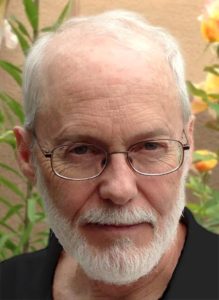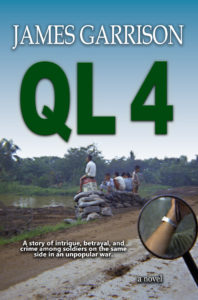James Garrison’s poem, “Lost: On the Staten Island Ferry,” has been nominated for a 2017 Pushcart prize! https://sheilanagigblog.com/2017/11/25/sheila-na-gig-online-2017-pushcart-prize-nominations/
“Lost: On the Staten Island Ferry” depicts a soldier’s despair at discovering what he’s lost while he was away at war. The drastic change from war-torn Vietnam and to seemingly untouched New York City and the hope of having a steadfast love waiting for you only to find it gone gives rise to the profoundly moving imagery in the poem.
Garrison notes that one of the risks for soldiers (and others) who are separated from spouses and close friends, especially for long tours, is that each person changes due to the experience of separation, and their own experiences in the interim (“Separation makes the heart grow fonder — of someone else” as the cynics say.) Also, many soldiers return from war zones much changed. As one reader told him: “The man who came back from Vietnam was not the man I married.” The “Dear John” letter is also a classic, and it appears in QL 4 as a motivator for Hodge’s going off the rails. That was based in part on Garrison’s lasting image from basic training of a soldier who tried to slit his wrists with a P-38 can opener after he received such a letter when they were in the field.
Many of our men and women who served and are still serving this country/the world will connect with these heart-wrenching words of pain, sorrow, and loss.
God bless them all and God bless America!
“Lost: On the Staten Island Ferry”
There, on an old worn seat, clean and cold,
I left it behind on the Staten Island Ferry—
after a walk on Wall Street,
a Saturday with darkness falling at four o’clock,
a wind chill of zero degrees,
a polar contrast to the heat, mosquitoes, and fear
I had known only days before.
The cold, cold wind I remember,
but I can’t remember
what she said,
staring past me
at dusk settling over the water
or perhaps at her reflection in the window.
She wore a bright red coat with gray fur at her neck
and at her throat;
I wore padded gabardine,
smooth and faded with age and use.
Did she wear a scarf, a hat? Did I?
It ended there, on the ferry sliding
through the black water of the harbor.
I can’t remember what she said.
But what she said was true,
truer than most words between lovers;
honest, confessional, expiatory,
perhaps even pleading.
What she wanted, I do not know—
to clear something away like the banked snow,
icy and dirty on Broadway.
To this city I was a stranger, an explorer,
on the Staten Island Ferry,
going nowhere and back.
Whatever it was she said,
I looked out the window
at the dusk turning night over the black water,
the lights, the statue and the lights not sparkling
but dully glowing in the dusk.
I can’t remember what she said.
The ferry entered the slip,
and we exited through the gate
(the only passengers coming back to the city,
maybe a worker or two,
the only fools wandering
through ice-cold canyons at Saturday dusk because I wanted to ride the Staten Island Ferry,
no other goal than to ride the ferry,
a frigid hour before sunset,
under a sunless milk sky
that turned to soot
then faded to black)
and I ate the apple that she gave me.
Who knew the City could be so empty,
so solitary?
Sitting there on the ancient wooden benches,
worn, scarred,
new, newer now,
not seeing the statue or the skyline as she spoke,
only hearing her tell me
and feeling the frisson of despair
that wouldn’t go away.
Only gray skies and no sunset to watch,
and the black night when we walked the icy streets
to the subway,
Battery Park or somewhere near.
I was a stranger, I didn’t know my way;
and what she said changed everything,
the wages of blunt honesty,
two strangers on the Staten Island Ferry
going their separate ways.
James Garrison is the author of QL 4, a story set in the Mekong Delta of Vietnam, 1969 – 1970…
PFC Bell, ex-grad student and newly-minted U.S. Army MP, knows there’s more than a war going on along QL 4, the main road from Saigon into the Mekong Delta. It’s old-fashioned crime and vice, and he does not want to get involved. But life for an American MP in 1970 Vietnam doesn’t work that way. QL 4 leads deep into a quagmire of deception, corruption, and death not only in the towns and military posts along the route but also in the old French villa where Bell and his fellow MPs live.


